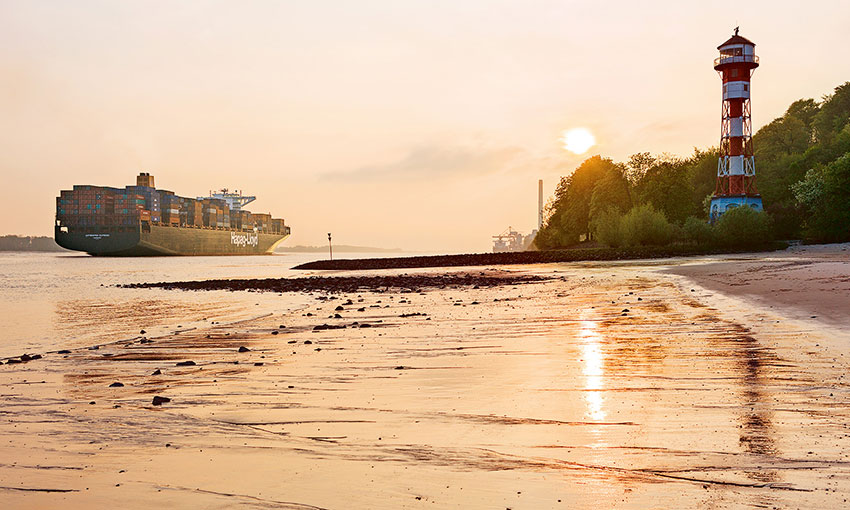HAPAG-Lloyd concluded two debt transactions according to the Green Loan Principles of the Loan Market Association. They were associated with the financing of six 23,500-TEU containerships, which were ordered in December 2020.
The Green Loan Principles aim to facilitate and support sustainable economic activity. The Loan Market Association sets out four core components of this type of loan.
The first principle is about ensuring loan proceeds are used for green projects, which should be described in the finance documents.
The second Green Loan Principle says the borrower of a green loan should communicate to its lenders its environmental sustainability objectives in the project being financed and the process by which it will be evaluated.
The third principle talks about how the loan proceeds should be used, and the fourth principle is about reporting on the use of the proceeds of the green loan.
Hapag-Lloyd’s syndicated green loan in the amount of US$417 million has a 12-year maturity and will be used to finance three of the six container ships on order.
The credit facility is being backed by the Korea Trade Insurance Corporation, and the syndicate consists of 11 banks. KfW IPEX-Bank and BNP Paribas were in charge of structuring and co-ordinating the transaction.
The lease financing for the remaining three newbuildings is in the amount of US$472 million, has a maturity of 17 years plus construction-phase financing, and has been structured by the Industrial and Commercial Bank of China Leasing (ICBC Leasing).
Hapag-Lloyd CFO Mark Frese said these first green financings are a major milestone for the company.
“We are breaking new ground in the container shipping segment by financing newbuilding projects geared towards sustainability,” he said.
“The transactions will help us to modernise our fleet while further reducing our carbon dioxide footprint at the same time.”
According to Hapag-Lloyd, the newbuildings will reduce carbon dioxide emissions by about 15-20%.
This means in addition to the requirements of the LMA’s Green Loan Principles, the ships will also satisfy the EU Taxonomy’s technical screening criteria for sea and coastal freight water transport, according to the company.
The vessels are being built in South Korea and are scheduled to be delivered in 2023.

